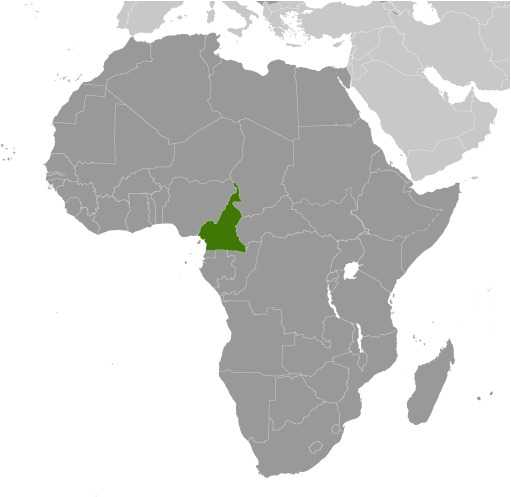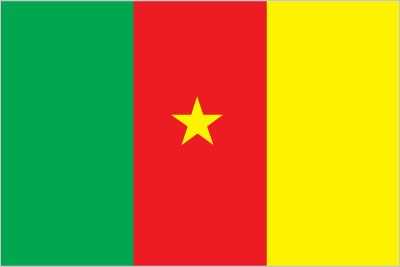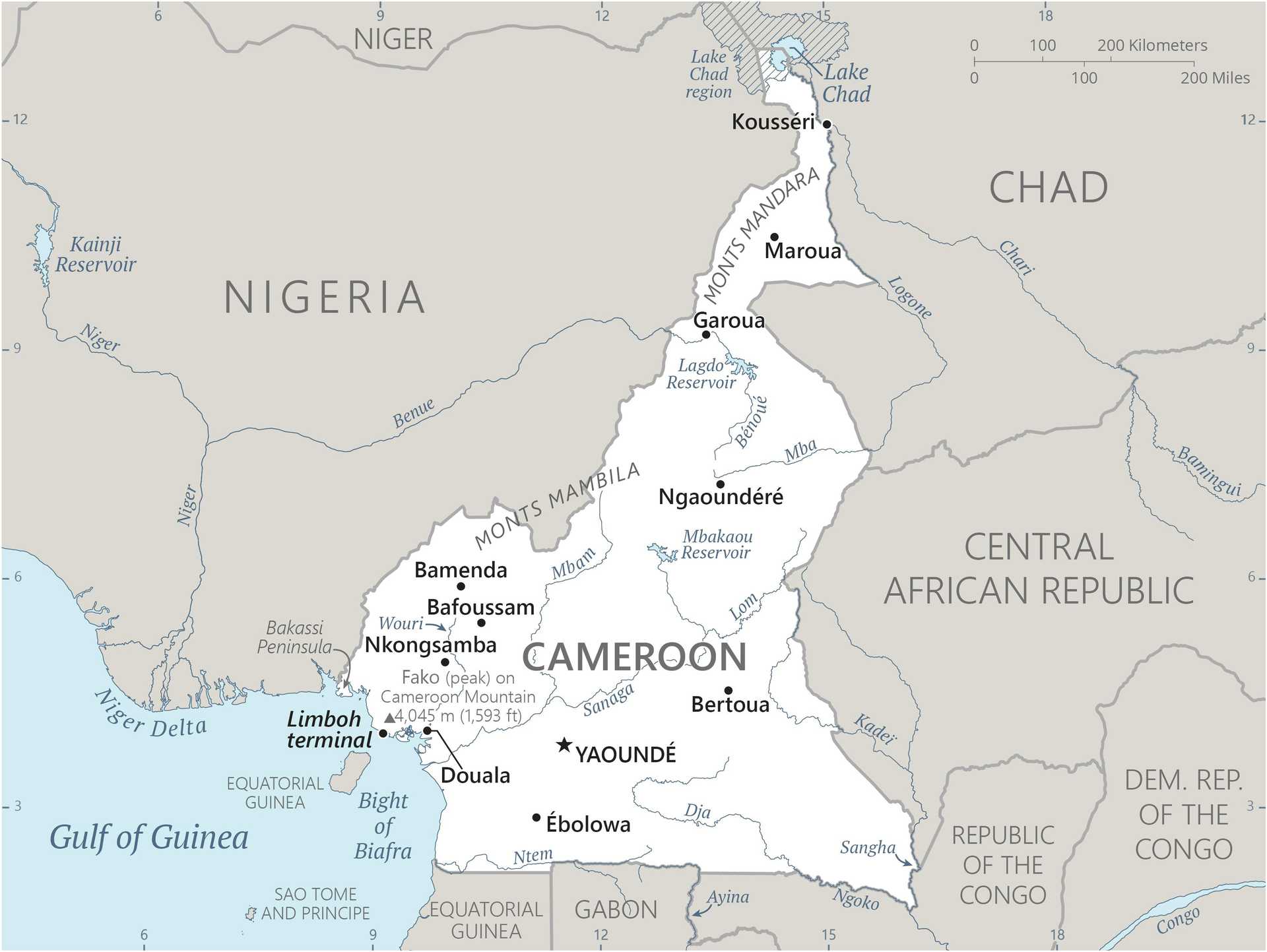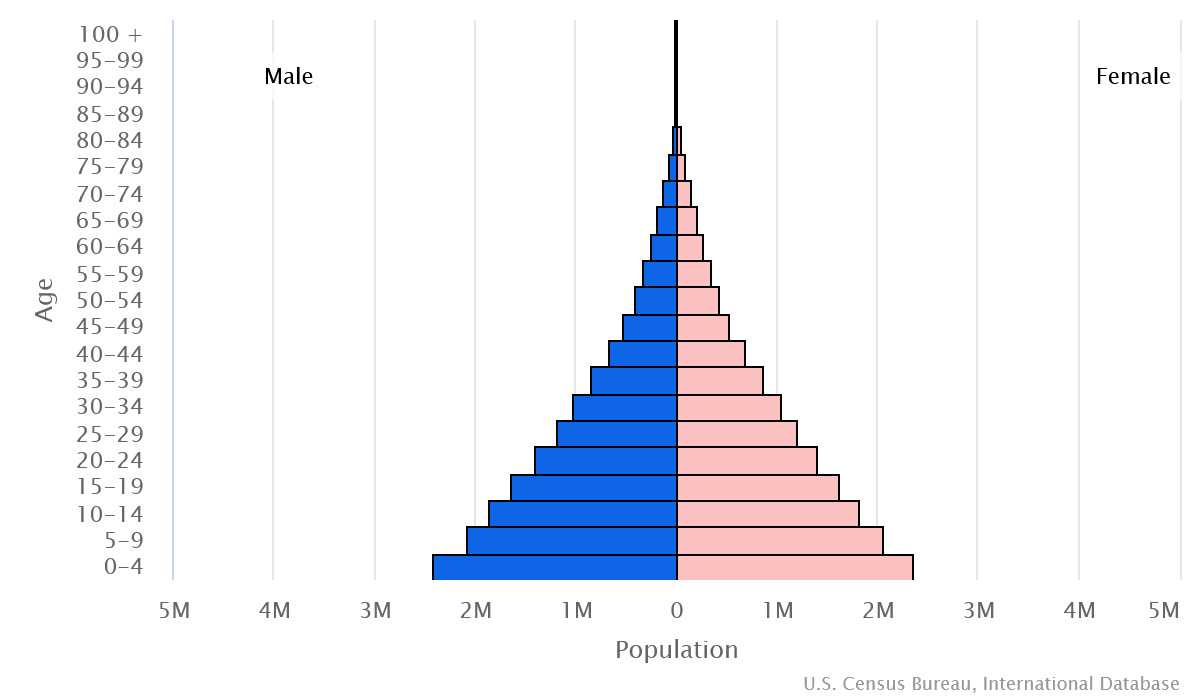Introduction
Background
Cameroon resulted from the merger of former French Cameroon and British Cameroon in the early 1960s. The country has generally enjoyed stability, permitting the development of agriculture, roads, railways, and a petroleum industry.
Geography
Area
total : 475,440 sq km
land: 472,710 sq km
water: 2,730 sq km
Climate
varies with terrain, from tropical along coast to semiarid and hot in north
Natural resources
petroleum, bauxite, iron ore, timber, hydropower
People and Society
Population
total: 30,966,105
Ethnic groups
Bamileke-Bamu 22.2%, Biu-Mandara 16.4%, Arab-Choa/Hausa/Kanuri 13.5%, Beti/Bassa, Mbam 13.1%, Grassfields 9.9%, Adamawa-Ubangi, 9.8%, Cotier/Ngoe/Oroko 4.6%, Southwestern Bantu 4.3%, Kako/Meka 2.3%, foreign/other ethnic group 3.8% (2022 est.)
Languages
24 major African language groups, English (official), French (official)
Religions
Roman Catholic 33.1%, Muslim 30.6%, Protestant 27.1% other Christian 6.1%, animist 1.3%, other 0.7%, none 1.2% (2022 est.)
Population growth rate
2.71% (2024 est.)
Government
Government type
presidential republic
Capital
name: Yaounde
Executive branch
chief of state: President Paul BIYA (since 6 November 1982)
head of government: Prime Minister Joseph NGUTE (since 4 January 2019)
Legislative branch
description: bicameral Parliament or Parlement consists of:
Senate or Senat (100 seats; 70 members indirectly elected by regional councils and 30 appointed by the president; members serve 5-year terms)
National Assembly or Assemblee Nationale (180 seats; members directly elected in 49 single and multi-seat constituencies by simple majority vote to serve 5-year terms)
Economy
Economic overview
largest CEMAC economy with many natural resources; recent political instability and terrorism reducing economic output; systemic corruption; poor property rights enforcement; increasing poverty in northern regions
Real GDP (purchasing power parity)
$138.925 billion (2023 est.)
$133.59 billion (2022 est.)
$128.969 billion (2021 est.)
Real GDP per capita
$4,800 (2023 est.)
$4,800 (2022 est.)
$4,700 (2021 est.)
Agricultural products
cassava, plantains, oil palm fruit, maize, taro, tomatoes, sorghum, sugarcane, bananas, vegetables (2022)
Industries
petroleum production and refining, aluminum production, food processing, light consumer goods, textiles, lumber, ship repair
Exports
$8.641 billion (2022 est.)
$7.447 billion (2021 est.)
$6.124 billion (2020 est.)
Exports - partners
Netherlands 19%, France 15%, India 14%, Spain 10%, China 8% (2022)
Exports - commodities
crude petroleum, natural gas, wood, cocoa beans, gold (2022)
Imports
$9.759 billion (2022 est.)
$9.025 billion (2021 est.)
$7.212 billion (2020 est.)
Imports - partners
China 39%, France 8%, India 6%, Belgium 4%, UAE 4% (2022)
Imports - commodities
refined petroleum, wheat, garments, rice, plastic products (2022)
Exchange rates
Cooperation Financiere en Afrique Centrale francs (XAF) per US dollar -
Page last updated: Wednesday, July 24, 2024




